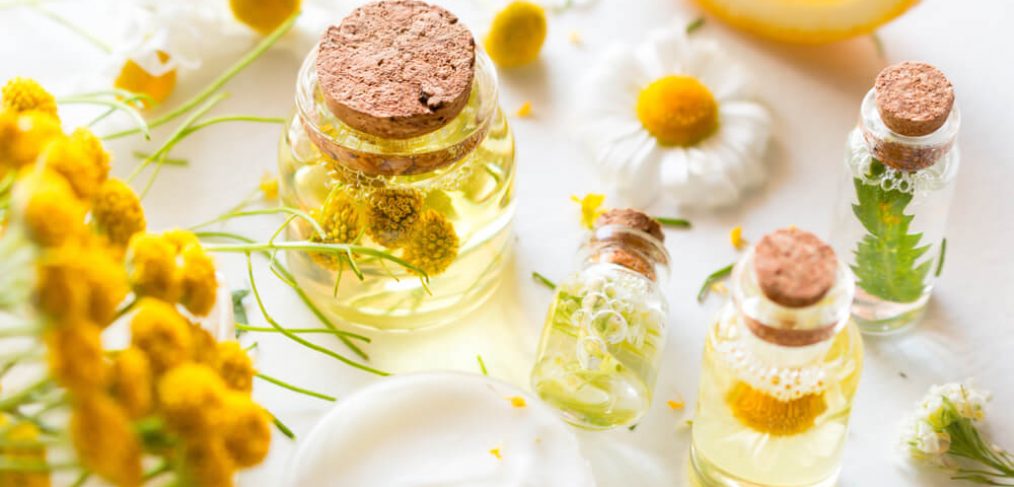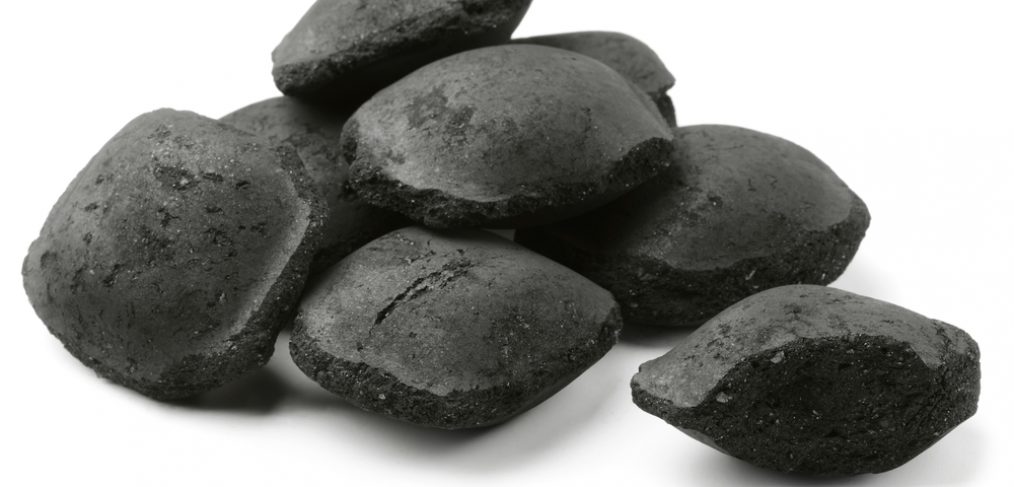While botanicals may have become quite the skin care buzzword lately, these natural ingredients have been used on the skin for decades. Botanical extracts are derived from plants, whether it be the flower, fruit or leaves, and this gives each one some truly powerful and unique properties.
Wondering which botanical ingredients you should be adding in to your skin care routine? Here are 10 of the best.
Grape Seed
Derived from the seeds of grapes, grape seed tends to appear as either an extract or an oil in skin care products, and can also be taken as oral supplements.
Whichever one you go for, this botanical has some incredible skin-boosting properties, such as:
- Contains potent antioxidants – not only does grape seed contain vitamins C and E, but it is also high in plant compounds known as OPCs. These have been shown to have 20 times the antioxidant power of vitamin E, along with 50 times that of vitamin C
- Anti-aging benefits – when applied to the skin, grape seed bonds with collagen to strengthen it. This then makes a huge difference to smoothness, wrinkles and elasticity
- Reduces sun damage – when applied to the skin before sun exposure, grape seed is able to help protect against the sun’s UV rays, boosting the way in which a sunscreen works. Some studies also suggest that grape seed can even protect against cancer
- Softens and moisturizes the skin – grape seed is a rich moisturizer, but is also extremely gentle
Aloe Vera
You have likely heard of, or even used, aloe vera before, but did you know that this plant contains more healing compounds than most of the other plants out there?
This is why aloe vera is often referred to as the miracle plant, as there are so many different issues that this botanical can treat.
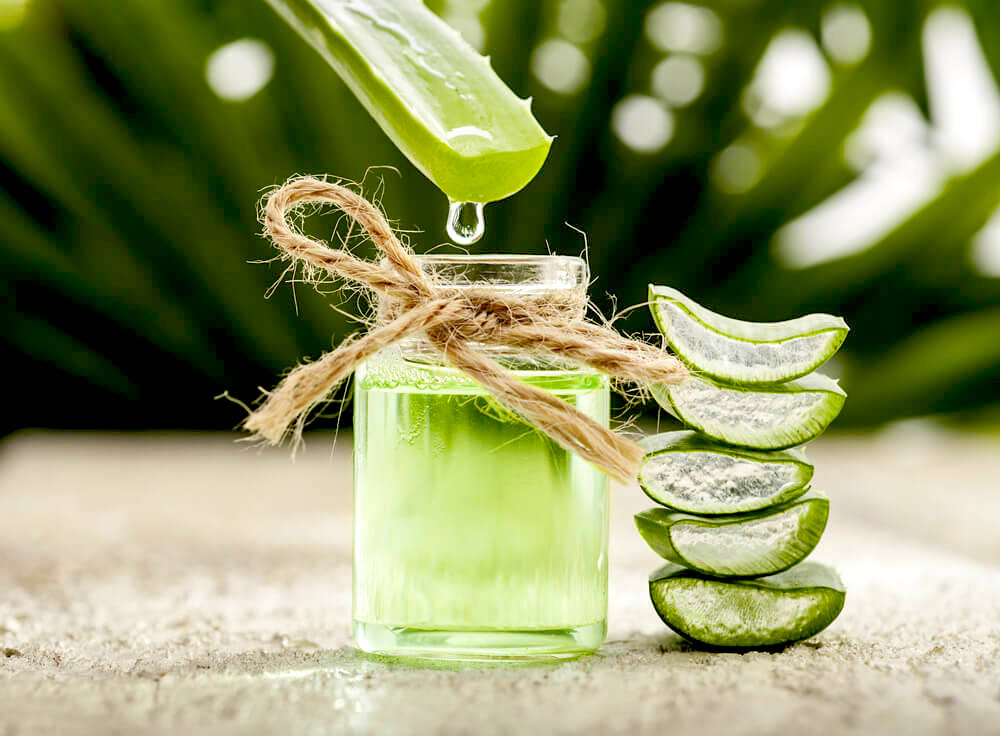
When it comes to the skin, aloe vera is most commonly used for its calming and soothing properties, which is why you will often find it formulated into products for sensitive skin.
In addition to this, aloe vera has a few other benefits, such as:
- Speeds up wound healing – due to its anti-microbial properties. This is also why the gel is a common treatment for sunburn
- Hydrates the skin – aloe vera has the ability to store huge amounts of water, as this helps the plant from drying out in the desert. These water-storing abilities translate to the skin as intense doses of moisture and hydration
- Packed with antioxidants – aloe vera contains a number of nutrients, and many of these are powerful antioxidants that can help to treat skin cell damage while preventing premature aging
- Can treat acne – this is thanks to the plant’s anti-microbial properties, as well as the way in which it can calm inflammation
- Has anti-aging effects – many of its nutrients, including vitamins C and E, are key when it comes to keeping the skin looking youthful
No matter your skin type, and whether you are suffering from acne, psoriasis, or anything else, aloe vera is a botanical that can probably help.
Witch Hazel
If you have oily, acne-prone skin, then you have probably already heard of, or even used, witch hazel before.
The botanical itself comes from the bark and leaves of the witch hazel shrub, a plant that is native to North America.
Why is it such a popular acne treatment?
Because, firstly, witch hazel is an anti-inflammatory. This means that not only can it reduce acne breakouts, but it can also treat other inflammatory skin conditions, such as eczema and psoriasis.
Witch hazel is also an astringent.
What does this mean?
That it causes the tissues in your skin to contract, resulting in the opening of your pores shrinking. This then prevents oil, bacteria and everything else from settling into your pores and causing breakouts.
If all of that wasn’t enough, witch hazel is also packed with tannins. These are plant compounds that boast antioxidant properties, meaning that they are able to neutralize free radicals in the skin. Research shows that tannins are also able to act as an effective barrier on the surface of the skin, preventing unwanted particles from entering into the skin’s layers.
Chamomile
A plant that produces small flowers that look similar to daisies, chamomile has long since been used for its healing properties.
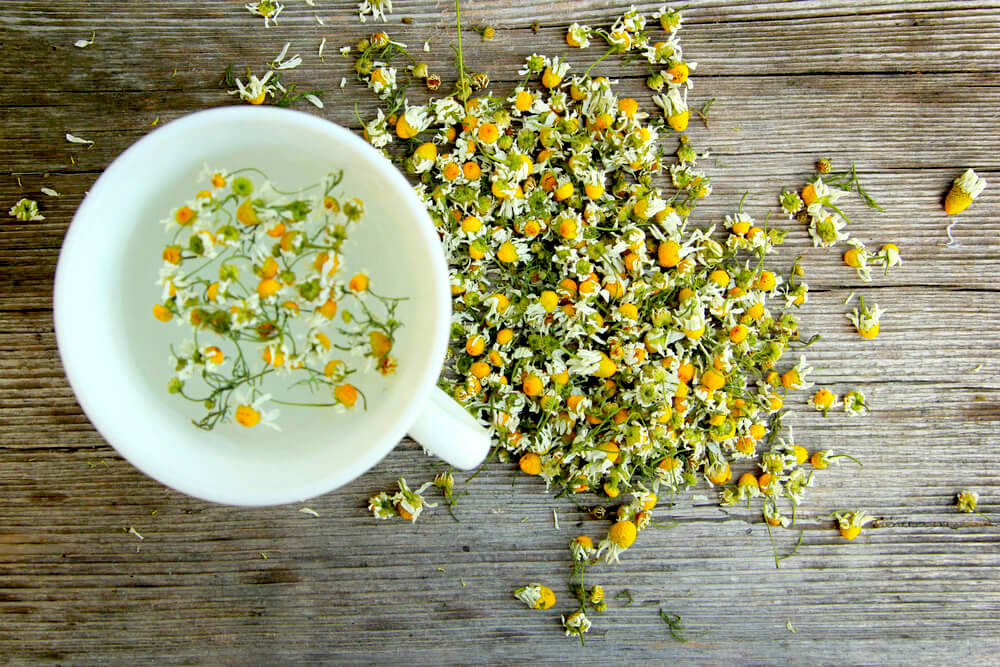
As you probably know, chamomile tea is often consumed for its calming effects, and these are the same benefits that your skin will experience when this extract is applied topically.
In a way, the skin effects of chamomile are quite similar to that of aloe vera, with chamomile also being an anti-inflammatory, antioxidant-rich and skin-soothing ingredient.
Just like aloe vera, chamomile is great for healing the skin, and is also often used for treating burns. It is also hydrating and gentle, making it ideal for all skin types, even for babies.
Green Tea
While all of the teas are fantastic for your skin, green tea is just that little bit more powerful, making this the tea to go for.
Studies show that green tea contains the most potent of all the antioxidants known to mankind. Known as EGCG, this antioxidant not only has anti-cancer properties, but is also a fantastic anti-aging compound.
Green tea is also highly anti-inflammatory. This is due to the polyphenols, known as catechins, within the extract.
If you’ve got acne, green tea can help with this too since it is an antibacterial agent, while those with dry skin will love the hydrating properties of this botanical.
Do you suffer from puffy eyes and dark circles?
Green tea contains tannins that are able to shrink blood vessels, reducing puffiness and redness, which is why this ingredient is often used in eye creams and serums.
Rose
Roses are quite an amazing plant, and so many parts of this plant are beneficial when it comes to the skin.
These are just a few of the products that can be made with roses:
- Rose water – a great cleanser and toner
- Rosehip oil – incredibly hydrating and moisturizing
- Rose extract – gentle but potent
No matter which type of rose product you choose, they all share similar properties, such as:
- Antibacterial – this makes rose an effective cleansing agent, especially for those who suffer from acne
- Anti-inflammatory – roses are fantastic for reducing redness and swelling while calming the skin
- Antioxidants – roses are packed with antioxidants, including especially high levels of vitamin C
- Astringent – roses have astringent properties, meaning that they are able to tighten up the pore openings
- Moisturizing – roses contain an array of natural oils that help to soften and condition the skin
As you already know, roses also have a beautifully distinct scent. For this reason, many skin care companies choose to use this botanical instead of a fragrance in their products.
Marine Algae
Often referred to as the superfood of the sea, algae, along with seaweed and kelp, is fantastic for the skin. This is something that is becoming more and more widely known, with over 40% of millennials in the USA already using a skin care product containing marine algae.

So, what makes algae so effective?
To begin with, algae is one of the most nutrient-dense crops in the world. These are just a few of the nutrients that can be found in marine algae:
- Vitamins A, B, C, D and E
- Minerals including copper, magnesium, manganese, iron, potassium, zinc, iodine, calcium and phosphorus
- Amino acids and proteins
- Peptides
What does all of this do for your skin?
Quite a bit, such as protecting against cell damage, hydrating the skin, nourishing the skin with antioxidants and providing the skin with plenty of anti-aging compounds.
There are many different types of marine algae out there, and while they all share some similarities, they also each have their own distinct properties.
Jojoba
Jojoba is a plant that is native to North America, and the oil that is derived from it is already an extremely popular skin care botanical.
Why?
Well, most importantly, the structure of jojoba oil mimics that of the sebum that is naturally produced by the skin. This means that jojoba is an oil that can even be used by those with oily skin. Rather than exacerbating oiliness, jojoba oil tricks the skin into thinking that it has produced enough oil, resulting in its sebum production slowing down.
Thanks to its unique structure, jojoba oil also has the ability to penetrate deeper into the skin than other oils, meaning that it can bring about more significant changes.
What does it actually do once it is in the skin?
A number of things, such as:
- Antibacterial properties – able to kill bacteria and fungi on the surface of the skin
- High in antioxidants – can fight free radicals, while its vitamin E helps to heal the skin
- Noncomedogenic – this means that it won’t clog up your pores
- Anti-aging benefits – jojoba oil can help to increase the rate at which your body produces collagen
- Speeds up wound healing – the oil encourages skin cells to bind back together again after they have been damaged and separated
- Anti-inflammatory – calms and soothes the skin, making it especially effective for eczema and psoriasis
Jojoba oil is extremely gentle and safe, meaning that not only can it be used by all skin types, but it can even be used on the more sensitive parts of the skin, such as around the eyes.
Oats
While oats may not be as exotic as some of the other ingredients on this list, this botanical has some amazing skin-boosting properties.
You probably already know that oats are a great ingredient to use if you need to soothe and calm your skin. This is due to the botanical’s anti-inflammatory and moisturizing properties, both of which are so effective when it comes to treating conditions such as eczema, psoriasis, dry skin and itching.
It is also packed with antioxidants, proteins and lipids, all of which help to protect the skin from damage while encouraging skin cell healing.
Wondering if you can just apply the oatmeal in your kitchen to your skin?
Technically, yes, but this won’t have much of an impact. The oat extracts contained in skin care products consist of molecules that are small enough to be absorbed by the skin, and this is something that won’t happen with standard oatmeal.
Pomegranate
Pomegranates have been around for over 3000 years, with ancient cultures being well familiar with the health benefits that this juicy fruit can bring.
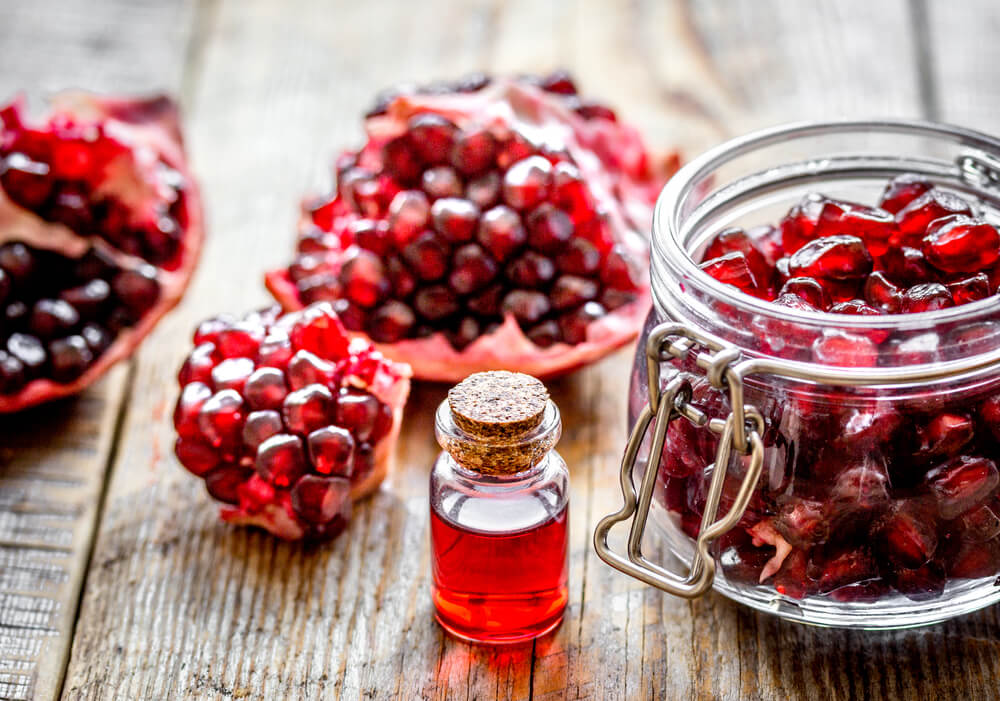
When it comes to the skin, pomegranate has a number of effects, including:
- High in antioxidants – research shows that pomegranate is very capable of protecting skin cells from damage. It also contains ellagic acid, which increases the rate at which the body produces its own antioxidants
- UV protection – while it shouldn’t replace your sunscreen, studies show that pomegranate is quite effective when it comes to protecting the skin from UV damage and sunburn
- Anti-inflammatory properties – this is down to the omega-5 punicic acid in pomegranates
- Anti-aging benefits – pomegranate is able to boost skin cell regeneration, as well as circulation, both of which keep the skin looking youthful
- Moisturizing properties – not only is pomegranate highly moisturizing, but the skin absorbs it easily, and it does not leave a greasy feeling behind
- Packed with vitamins and minerals – these include everything from vitamins C and K to potassium, iron and zinc
As more and more people are recognizing the benefits of botanicals, these ingredients can now be found in such a wide range of skin care products. They are able to help with so many different skin concerns, making it well worth incorporating more botanicals into your skin care routine whenever possible.



